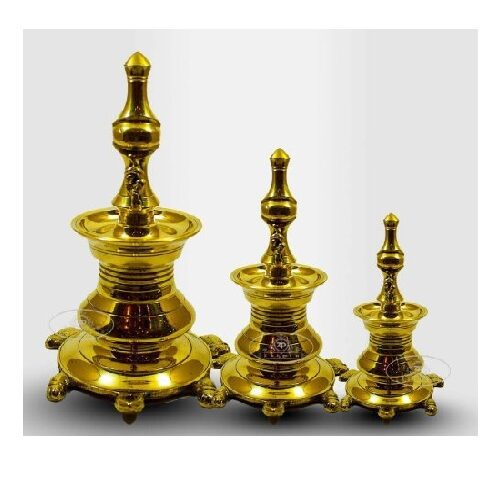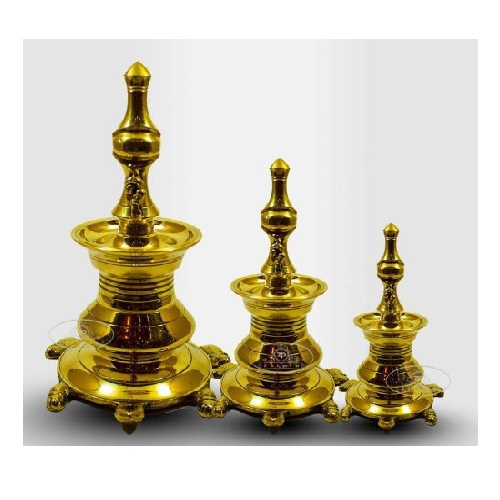Vastu Vilakku Vastu Lamp The sacred lamp
Vasthu Vilakku – Illuminating the Path of Harmony
Vastu lamps, also known as Vastu Vilakku or Vastu Diya, are traditional Indian oil lamps used in Vastu Shastra, the ancient Indian science of architecture and design. These lamps hold cultural and spiritual significance and are believed to bring positive energy and harmony to a space.
ശക്തമായ വാസ്തു നിയമങ്ങളുടെ അടിസ്ഥാനത്തിലാണ് വാസ്തു വിളക്ക് രൂപകൽപ്പന ചെയ്തിട്ടുള്ളത്.
Where and How to Place Vastu Lamps? or Where vaasthu vilakku placed?
This traditional vastu lamp can be placed in the north east corner.
Which day or when vasthu vilakku first light?
- Light the vasthu vilakku first time on a Friday early morning, putting 5 wicks; east,south,west,north, north east.
- Light the vasthu vilakku using ghee for the first time subsequently east and west sides using oil. The front side of the vasthu vilakku to be kept east facing.
Order Online Vaasthu vilakku Free Shipping all over India

Vaasthu Lamp Design,Shap and size
Vastu Lamps Design: Vastu lamps typically have a traditional design and are made of various materials such as brass, bronze, clay, or stone. They often feature intricate carvings or decorative patterns.
Vasthu Vilakku Shape and Size: Vastu lamps come in various shapes and sizes, including circular, rectangular, or bowl-shaped. The size may range from small handheld lamps to larger decorative pieces.
Vaasthu vilakku different sizes and bulk order small to large @online kingnqueenz.com.
Fuel: Traditionally, Vastu lamps are oil lamps that use a cotton wick immersed in oil as a fuel source. Ghee (clarified butter) or sesame oil is commonly used. However, modern versions may use electric bulbs or candles as an alternative.
Remember that while Vastu lamps hold cultural and spiritual significance, their effectiveness is subjective and based on personal beliefs. It’s always important to respect and follow your own cultural practices and traditions.




